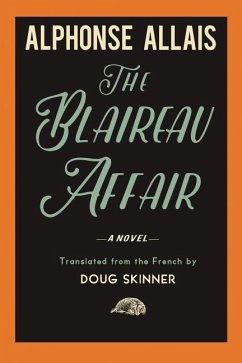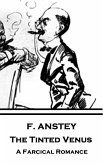Adapted to film four times, "L'Affaire Blaireau" has remained popular and in print in France since its original appearance in 1899. This is its first publication in English. It is humorist Alphonse Allais's only novel and, in the words of translator Doug Skinner: "It isn't quite as wild or cruel as his early stories, but I find it delicious anyway. Summer in the provinces, the shrewd but impressionable Blaireau, futile political squabbles, a ridiculous but charming love story, what more could one want? And innocence is rewarded!" Indeed, this novel is a rare find to be savored by the author's growing circle of fans in America.
Bitte wählen Sie Ihr Anliegen aus.
Rechnungen
Retourenschein anfordern
Bestellstatus
Storno





